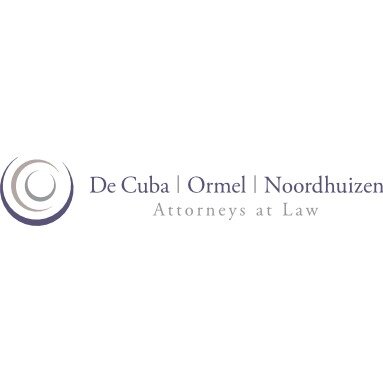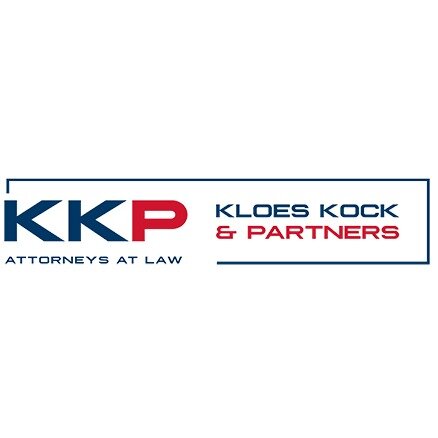Best Mining Law Lawyers in Aruba
Share your needs with us, get contacted by law firms.
Free. Takes 2 min.
Or refine your search by selecting a city:
List of the best lawyers in Aruba
About Mining Law in Aruba
Mining Law in Aruba refers to the collection of statutes, regulations, and legal principles that govern the exploration, extraction, and management of mineral resources on the island. Aruba, though known chiefly for tourism, also has a history of mining activities, especially gold and phosphate mining in the past. Modern Mining Law covers the rights and obligations relating to any ongoing or potential mining activities, including those concerning environmental preservation, land use, and labor considerations.
Why You May Need a Lawyer
Mining Law involves a complex interaction between private interests and public regulation. Whether you are an individual, business owner, investor, or landholder, you may require legal help in scenarios such as:
- Securing permits or licenses for mineral exploration or extraction
- Negotiating mining leases and contracts
- Resolving disputes regarding land ownership or mineral rights
- Understanding environmental impact requirements and compliance
- Responding to government enforcement actions or investigations
- Structuring investments or joint ventures in mining projects
- Dealing with taxation and royalties related to mineral production
- Pursuing compensation for environmental or property damages
Local Laws Overview
Aruba’s mining activities are primarily regulated through a combination of local statutes, government decrees, and administrative regulations. Key points include:
- Exploration Permits: Any individual or entity wishing to explore for minerals must obtain government permits. Applications must be submitted with detailed plans and impact assessments.
- Environmental Protection: Environmental preservation is a priority in Aruba. Mining operations are subject to strict rules to prevent land, water, and air pollution. Environmental evaluations and restoration plans are often mandatory.
- Land Ownership and Mineral Rights: While land may be privately owned, the rights to subsurface minerals typically vest in the government, requiring negotiation and approval for any extraction activities.
- Royalty and Taxation: License holders are subject to taxes and royalties based on production volume or value. The government sets these rates, which may change over time.
- Labor and Occupational Safety: Mining operations must comply with labor laws and occupational health and safety standards established under Aruban law.
- Import and Export Controls: The movement of extracted minerals is regulated, and specific permits are necessary for export.
- Closure and Reclamation: After mining activities cease, operators are required to rehabilitate land and address any ongoing environmental risks.
Frequently Asked Questions
What types of minerals can be legally mined in Aruba?
Exploration and extraction are possible for various minerals, depending on government policy and environmental considerations. Historically, gold and phosphate have been active sectors, although other minerals may be permitted subject to approval.
Do I need a permit to conduct mineral exploration in Aruba?
Yes, all mineral exploration in Aruba requires an official government permit. Application procedures involve environmental assessments and approval from relevant authorities.
Who owns the mineral rights in Aruba?
In Aruba, the government typically retains ownership of mineral resources below ground. Private landowners may not automatically have rights to the minerals on or below their property.
What environmental regulations apply to mining projects?
Mining operations are subject to strict environmental regulations, including the need to conduct environmental impact assessments and implement protection and restoration measures.
Are there restrictions on foreign ownership or involvement in mining ventures?
Foreign entities are permitted to participate in mining in Aruba, but may face additional approval processes or requirements compared to local entities. It is essential to verify eligibility before investing.
What taxes or royalties apply to mineral extraction?
Royalties and taxes are levied on the commercial extraction of minerals. The precise rates and methods of calculation are set by the government and may depend on the type and value of the minerals produced.
Can mining rights be transferred or sold?
In most cases, mining rights, licenses, or permits can be transferred or assigned, subject to review and consent by the competent government authority.
What are the penalties for illegal mining activities?
Penalties include fines, confiscation of equipment or materials, suspension or revocation of licenses, and in severe cases, criminal prosecution.
How are disputes over mining rights resolved?
Disputes are typically resolved through negotiation, administrative review, or court proceedings. Many issues can be settled with the assistance of legal counsel familiar with mining law.
What obligations do mining operators have at the end of a project?
Operators are required to rehabilitate mined land, restore affected environments, and fulfill all closure and reporting requirements stipulated by their licenses and environmental authorities.
Additional Resources
People seeking information or assistance in Mining Law in Aruba may find the following resources helpful:
- Department of Infrastructure and Environment (DOW): The principal authority responsible for regulating mining permits, environmental guidelines, and project approvals.
- Aruba Chamber of Commerce: Provides guidance for businesses, including those involved in mining or related sectors.
- Legal Aid Office (Bureau Rechtsbijstand): Offers assistance to qualifying individuals needing legal representation or consultation.
- Ministry of Economic Affairs, Communication and Sustainable Development: Involved in economic policy, including mining sector development and environmental protection.
- Local Law Firms: Law firms in Aruba with expertise in mining, environmental, and commercial law.
Next Steps
If you require legal assistance in Mining Law in Aruba, consider the following steps:
- Document your situation, including relevant contracts, permits, correspondence, and other materials.
- Identify the exact nature of your legal concern, whether it involves permits, disputes, investments, or compliance issues.
- Consult with a qualified lawyer or legal advisor experienced in Mining Law in Aruba.
- Contact relevant government departments for clarification on regulations or application processes.
- Seek additional information from professional bodies, trade associations, or legal aid offices if you have questions about your rights or obligations.
Lawzana helps you find the best lawyers and law firms in Aruba through a curated and pre-screened list of qualified legal professionals. Our platform offers rankings and detailed profiles of attorneys and law firms, allowing you to compare based on practice areas, including Mining Law, experience, and client feedback.
Each profile includes a description of the firm's areas of practice, client reviews, team members and partners, year of establishment, spoken languages, office locations, contact information, social media presence, and any published articles or resources. Most firms on our platform speak English and are experienced in both local and international legal matters.
Get a quote from top-rated law firms in Aruba — quickly, securely, and without unnecessary hassle.
Disclaimer:
The information provided on this page is for general informational purposes only and does not constitute legal advice. While we strive to ensure the accuracy and relevance of the content, legal information may change over time, and interpretations of the law can vary. You should always consult with a qualified legal professional for advice specific to your situation.
We disclaim all liability for actions taken or not taken based on the content of this page. If you believe any information is incorrect or outdated, please contact us, and we will review and update it where appropriate.
Browse mining law law firms by city in Aruba
Refine your search by selecting a city.











